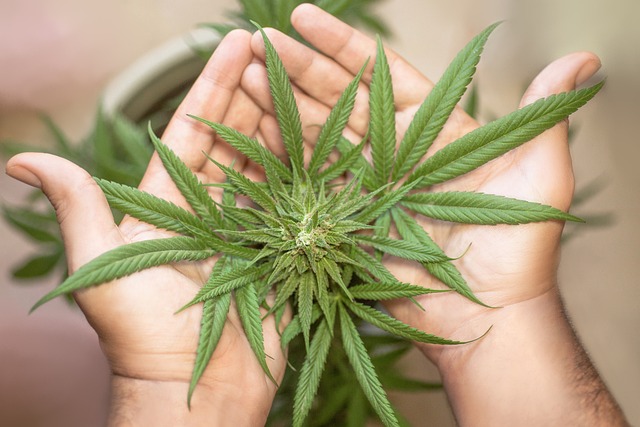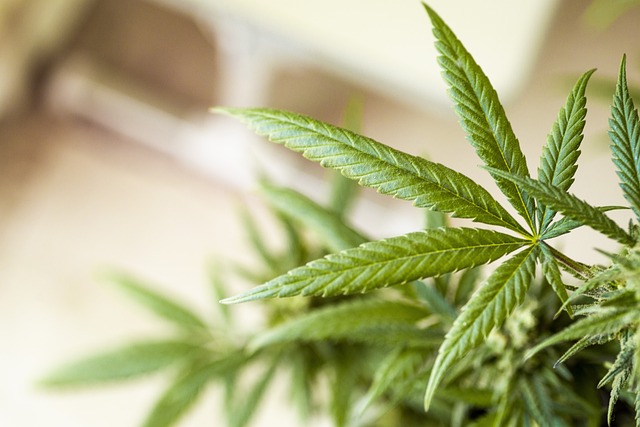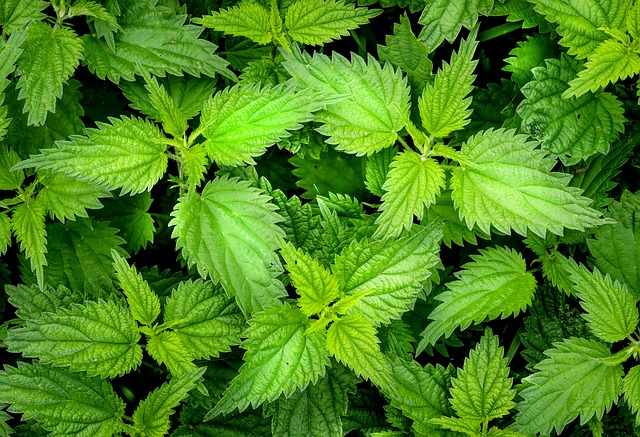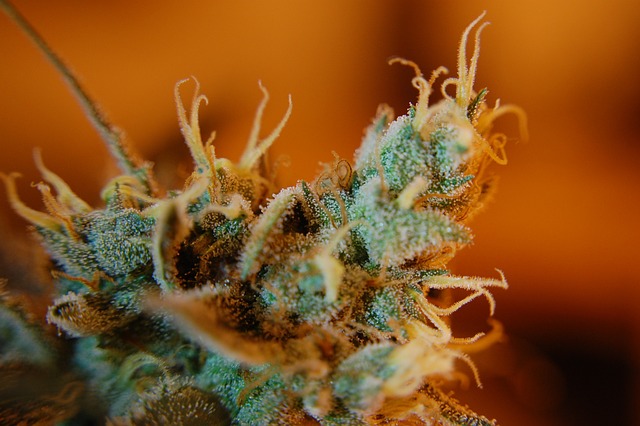The interest in THCA-rich cannabis seeds has significantly grown due to their potential health benefits and non-psychoactive nature. These seeds contain high levels of tetrahydrocannabinolic acid (THCA), a precursor to THC, which is recognized for its anti-inflammatory, neuroprotective, and analgesic properties without the psychoactive effects of THC. The market for THCA-rich cannabis seeds sale is expanding as consumers and researchers explore these therapeutic benefits. For cultivators, understanding genetic selection and optimal growing conditions to maximize THCA production is key. Careful handling post-harvest is necessary to maintain THCA's integrity before it converts into THC upon drying or heating. The evolving legal landscape presents opportunities for both new and experienced growers in this niche market, offering an alternative to synthetic CBD products and integrating into wellness routines naturally. As the understanding of THCA and its potential within the endocannabinoid system grows, so does the availability of THCA-rich cannabis seeds for those interested in cultivation or incorporating raw cannabis into their diet for its health benefits. The cultivation of these strains has diversified, with a wide range of options now available to cater to various consumer needs and preferences within the burgeoning market for THCA-rich cannabis seeds sale.
Discover the emerging world of THCA-rich cannabis, a non-psychoactive compound that’s capturing the attention of wellness enthusiasts and researchers alike. This article delves into the potential benefits and therapeutic properties of THCA-rich cannabis seeds sale, shedding light on their growing popularity in legal markets. As we explore the key differences between raw THCA and other cannabinoids, we’ll also discuss how to safely incorporate these cannabis wonders into your daily routine. From understanding the science behind its effects to navigating legal considerations, this guide covers everything you need to know about cultivating, storing, and consuming THCA-rich cannabis responsibly. We’ll examine the entourage effect, the role of terpenes, and the impact on mental health and cognitive function. With a focus on safety, dosage, and personal experiences, this article aims to provide a comprehensive overview of THCA-rich cannabis, ensuring you’re well-equipped with knowledge for your health journey or potential purchase of these seeds.
- Understanding THCA-Rich Cannabis Seeds and Their Potential Benefits
- The Rise of THCA-Rich Cannabis Flowers in Legal Markets
- Key Differences Between Raw THCA and Other Cannabinoids
- Exploring the Therapeutic Properties of THCA
Understanding THCA-Rich Cannabis Seeds and Their Potential Benefits

Exploring THCA-rich cannabis seeds presents an intriguing frontier in plant genetics and cannabinoid science. Tetrahydrocannabinolic acid (THCA) is the non-psychoactive precursor to the well-known psychoactive compound THC, found in mature cannabis flowers. These seeds contain high levels of THCA and are gaining popularity among consumers seeking the potential therapeutic benefits associated with this natural compound. The interest in THCA-rich cannabis seeds for sale has surged as researchers uncover more about its promising properties, which may include anti-inflammatory, neuroprotective, and analgesic effects. Unlike its psychoactive counterpart, THCA does not induce the “high” associated with traditional cannabis use, making it a preferred choice for those looking to harness its potential health benefits without the mind-altering effects.
Growers interested in cultivating these seeds can capitalize on the growing market for THCA-rich products. The cultivation of such plants requires careful selection of genetics and growing conditions that optimize THCA production. As these plants mature, careful harvesting and handling are necessary to preserve the THCA content before it converts into THC upon heating or drying. The sale of THCA-rich cannabis seeds has become a lucrative aspect of the cannabis industry, with numerous seed banks and distributors offering a variety of strains known for their high THCA content. As legal restrictions continue to lift across various jurisdictions, the potential for these seeds to be cultivated at scale, providing a natural alternative to synthetic CBD products, becomes increasingly feasible. This burgeoning market invites both seasoned and novice growers to explore the vast potential of THCA-rich cannabis and its place in a wellness regimen.
The Rise of THCA-Rich Cannabis Flowers in Legal Markets

The emergence of THCA-rich cannabis flowers has marked a significant shift in the legal cannabis market, with consumers and patients exploring the potential benefits of this non-psychoactive cannabinoid. Tetrahydrocannabinolic acid (THCA) is the precursor to THC, the primary psychoactive component of cannabis. As interest in cannabinoids grows, so does the demand for THCA-rich cannabis seeds, which are specifically bred to cultivate plants with high levels of this cannabinoid. These seeds are becoming increasingly available for sale, allowing growers to produce flowers that offer the therapeutic and wellness effects associated with THCA without the psychoactive “high” associated with its decarboxylated form, THC.
The rise in popularity of THCA-rich cannabis is attributed to its potential health benefits, which include anti-inflammatory and pain-relieving properties. Unlike its psychoactive counterpart, THCA does not induce euphoria or alter cognitive function, making it an attractive option for individuals seeking the medicinal effects of cannabinoids without mind-altering side effects. As a result, consumers are turning to these products as a natural alternative to conventional pharmaceuticals for managing various health conditions. The market for THCA-rich cannabis seeds has expanded, with numerous breeders and seed companies offering a diverse array of strains to suit different preferences and intended uses. This trend is set to continue as more research unfolds and consumer understanding of the endocannabinoid system deepens, further solidifying the place of THCA-rich cannabis in the legal cannabis industry.
Key Differences Between Raw THCA and Other Cannabinoids

THC-A, or tetrahydrocannabinolic acid A, is a non-psychoactive cannabinoid found in raw cannabis plants, which undergoes decarboxylation to become the psychoactive THC when heated. This key difference sets THCA apart from its psychoactive counterpart, THC, and other cannabinoids like CBD and CBN. THCA-rich cannabis seeds are gaining popularity among consumers seeking the potential wellness benefits of cannabinoids without the high associated with THC. Unlike THC, THCA has been studied for its potential anti-inflammatory and neuroprotective properties, making it a subject of interest in various therapeutic applications. The unique chemical structure of THCA includes an additional acid group, which may influence its interaction with the body’s endocannabinoid system and its effects compared to other cannabinoids.
The seed-to-flower journey of cannabis plants ensures that cultivators can produce strains high in THCA. These THCA-rich cannabis seeds sale are increasingly available to consumers who wish to experiment with the raw cannabinoid’s potential benefits, often by juicing the raw plant or incorporating it into recipes before any heat is applied. The key differences between THCA and other cannabinoids lie not only in their effects but also in their legal status; while many regions have legalized certain forms of cannabis, the cultivation and sale of seeds that produce high levels of THCA must comply with specific regulations. Understanding these differences is crucial for consumers and producers alike as they navigate the evolving landscape of cannabis products.
Exploring the Therapeutic Properties of THCA

Cannabidiolic acid (THCA), the non-psychoactive precursor to THC found in cannabis plants, has garnered significant attention for its potential therapeutic properties. THCA-rich cannabis seeds are becoming increasingly available for those seeking the benefits associated with this compound without the psychoactive effects of Delta-9-THC. Studies indicate that THCA may offer analgesic and anti-inflammatory effects, making it a subject of interest for individuals looking for natural alternatives to manage pain. Preclinical research suggests that THCA interacts with the body’s endocannabinoid system, influencing various physiological processes, including immune response and inflammation regulation. Its potential applications span a wide range of conditions, from neuropathic pain to arthritis, offering a promising avenue for alternative medicine. The cultivation of THCA-rich cannabis strains has led to an array of seed options available for purchase, allowing consumers to grow their own plants and harness the therapeutic potential of this cannabinoid directly from the source. As scientific understanding of THCA continues to evolve, so does the market for high-quality THCA-rich cannabis seeds sale, catering to a diverse demographic seeking natural relief.
THCA-rich cannabis seeds and flowers have emerged as a notable choice for consumers seeking alternative therapeutic options within legal markets. As explored in this article, these seeds and their derived flowers hold potential benefits that differentiate them from other cannabinoid-rich products. Understanding the distinct properties of THCA and its effects compared to other cannabinoids is crucial for those looking to explore its therapeutic possibilities. The discussion on the key differences between raw THCA and other cannabinoids highlights the unique position THCA holds within the realm of cannabis research and applications. Prospective buyers interested in THCA-rich cannabis seeds sale should consider these insights when making informed decisions about their health and wellness regimens. In conclusion, while the therapeutic properties of THCA are promising, further research is essential to fully understand its impact and potential benefits, ensuring responsible usage and guiding future developments in this burgeoning field.
